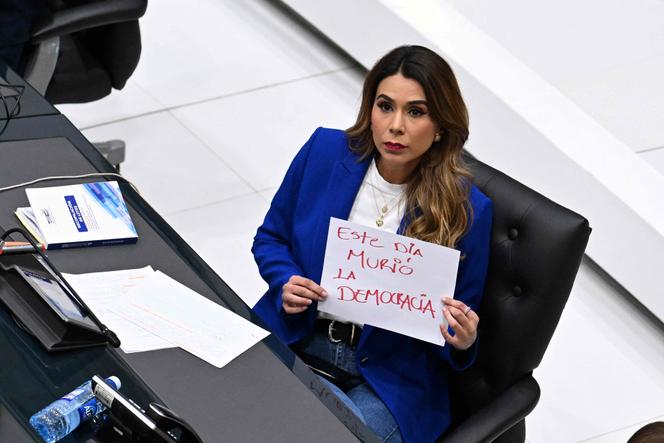


El Salvador's President Nayib Bukele secured the right to seek indefinite re-election on Thursday, August 1, after his party-controlled Congress approved a sweeping constitutional reform that also extends presidential terms from five to six years. In a fast-tracked vote, 57 of 60 lawmakers passed measures allowing re-election "without reservation," extending the presidential term from five to six years, and doing away with a second round of voting in elections.
Bukele, 44, who has been president since 2019 and was re-elected in 2024 with 85% of the vote, now holds near-total control over the country's institutions – in what the opposition calls a "dictatorship."
Fireworks erupted in the main square of San Salvador as lawmakers ratified the reform in a second late-night plenary session. "Thank you for making history, colleagues," said Assembly President Ernesto Castro of Bukele's party.
The reform also shortens the current presidential term by two years, moving general elections to March 2027 – which would allow Bukele to seek a longer new term earlier than scheduled if he wins. Lawmakers also voted to synchronize legislative, presidential and municipal elections.
Bukele enjoys enormous support at home for his heavy-handed campaign against criminal gangs, which has reduced violence in the country to historic lows. But it has also drawn sharp criticism from international rights groups. The reforms came shortly after a wave of arrests targeting human rights defenders and government critics, prompting dozens of journalists and humanitarian workers to flee the country.
Ruling party lawmaker Ana Figueroa, who introduced the reform, said Salvadorans "can now decide how long to support their president." But opposition lawmaker Marcela Villatoro denounced the move. "Today, democracy has died in El Salvador," she said, criticizing the reforms' approval just as the country enters a week-long vacation. "They've taken off the masks... They're shameless."
In a speech marking the first year of his second term, Bukele said he doesn't care if people call him a dictator, brushing off international criticism over the arrest of humanitarian activists. A close ally of US President Donald Trump, Bukele's international image has been dented by his handling of detainees. His government held 252 Venezuelans for four months in a mega-prison he built for gang members. Many later alleged torture and abuse.
Emboldened by its relationship with Trump, the Bukele administration detained human rights defenders in May and June, including prominent lawyer Ruth Lopez, who had denounced alleged cases of government corruption.
Under the ongoing emergency regime, roughly 88,000 people have been arrested on gang-related charges. Rights groups say thousands were detained arbitrarily, and more than 400 have died in custody. Bukele's 2024 re-election had already sparked concern, with critics arguing it violated the constitution and was enabled by a ruling by loyalist judges.
